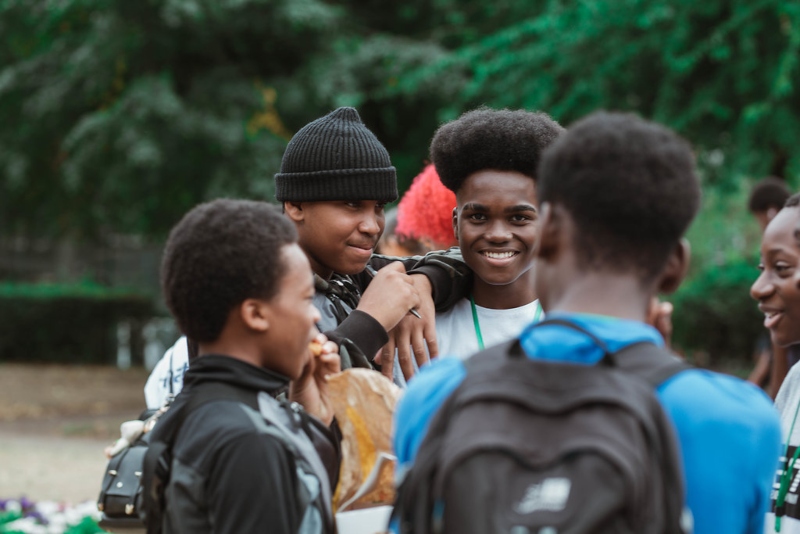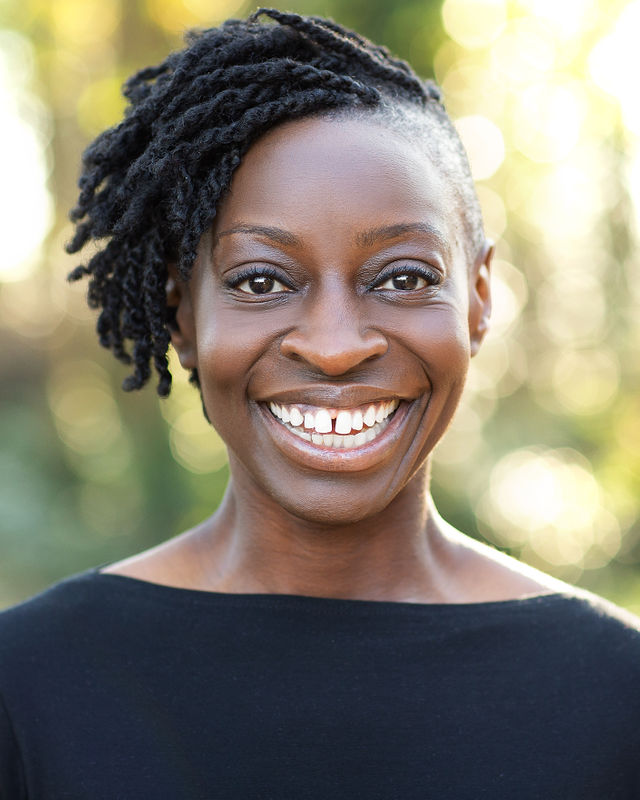'We need to really try to understand each other'
Reflections on racial justice and young people, with Amie Buhari, founder and chief executive of the Hebe Foundation

“I was involved in a zoom conversation with about 15 young people of colour, aged 12 to 19,” says Amie Buhari. “Every single person had experienced racism. People are wanting to speak. They want their truth to be heard. And they want guidance on how to respond.”
Amie is the founder of the Hebe Foundation, a Baptist-led youth organisation that helps young people discover and use their talents. Her wisdom and experience, and that of her team, (Hebe was founded in 2007), have been in much demand over the summer.
On the one hand there are all the young people Hebe is involved with. Many have struggled with a lack of purpose during the lockdown: they had their freedoms abruptly taken away, and not being sure of what comes next has led to a listlessness and lack of motivation, she says. On top of this dislocation came the killing of George Floyd and ensuing focus on systematic and at times brutal racism.
 “The young people we’re speaking to have a range of emotions,” explains Amie (pictured).
“The young people we’re speaking to have a range of emotions,” explains Amie (pictured).
“They’ve been asking a lot of questions. Do we march? Do we protest? Why am I feeling this way? Is it a problem for the older generation – or for us?
“They’ve expressed their distrust of the police, of institutions. There’s a feeling of a need to get involved, but there is a disconnect – many are processing lockdown, their loss of freedom. I’ve seen a lack of motivation from young people, and now this change in sense of identity. They’re saying: ‘This situation is too much: how are we supposed to navigate it?’
“And the non-black kids are asking: ‘How do I empathise with my friends?’
The team at Hebe have been trying to provide space for the young people to express these emotions, keeping them positive and help them get over feelings of inadequacy. In this way lockdown brought both advantages and disadvantages. Hebe has been able to run all the things it normally would online.
“We haven’t had the captive audience, so it isn’t the same. There has been a lack of motivation among some, as mentioned, and there’s definitely been a sense of digital overload – some have just said: ‘I’m off all social media, I need a break’.
“But having said that, it’s been a good time of growth. We’ve been able to reach out to more people as we’ve not been restricted by geographical boundaries. We’ve been able to do even more 1-1s, as well as more education with parents and carers, who have been around more.”
The second key strand of Hebe’s ministry over the summer has been with adults in leadership roles. Dozens of ministers and church leadership team have contacted them asking for advice in the aftermath of George Floyd.
“They’ll say: ‘I’m a white church minister, it’s not my experience; how do I connect with young people, teach and explore race matters? I’m feeling totally inadequate and don’t know what to do.’
“And it’s been happening at many levels. I was in a Zoom meeting with the Archbishop of Canterbury and other faith leaders, who were doing a listening exercise. At every level churches are trying to process what’s happened. They’re asking: ‘How do we respond? What are our actions to make tangible change?’”
Amie believes people are listening, and listening more intentionally: she sees that people want to do something. But will that translate into long-term change?
She believes God is working through this situation, and that if people with a heart for Him and his love work together, change could happen.
“I want to see everybody come to the table, break bread together and come together as equals with Christ at the head of the table. The table can’t be crooked. We need to get to know each other. If there aren’t black people there, why haven’t we invited them? We need to get to know the other.
“We need to talk about our issues, the brokenness, the ugliness, have uncomfortable conversation, at an equal table with Christ as the head.”
It needs to be proactive and purposeful, she adds. “We need to be intentional, in all areas of church. Are we allowing the expression of our all cultures in all we do? Is it reflected in our Sunday Schools, in our worship, in our leadership roles and responsibilities? One small example, do we have black and white dollies in our creche?
“We need to really try to understand each other.”
She says she has hope for three reasons.
Firstly, the young people themselves. “Young people have the mindset and support to stand up and fight the system. We’ve seen this with the climate and now with Black Lives Matter. They say: ‘Things don’t have to be this way.’”
Secondly there is also the hope that through Covid, people have stepped back and realised the fragility of life. They’ve been able to reflect and reassess. And thirdly and most importantly, there’s also the hope that comes through our God.
Photo | Hebe Foundation
In 2007 Amie set up?Hebe Foundation, with the aim of helping young people discover and use their talents. She wanted to create events and programmes that would challenge and encourage them, giving them a safe environment to try things, learn new skills, fail and grow.?She says by God’s grace it has grown, and has helped many young people living purpose-filled lives.
This article appears in the Autumn 2020 edition of Baptists Together magazine